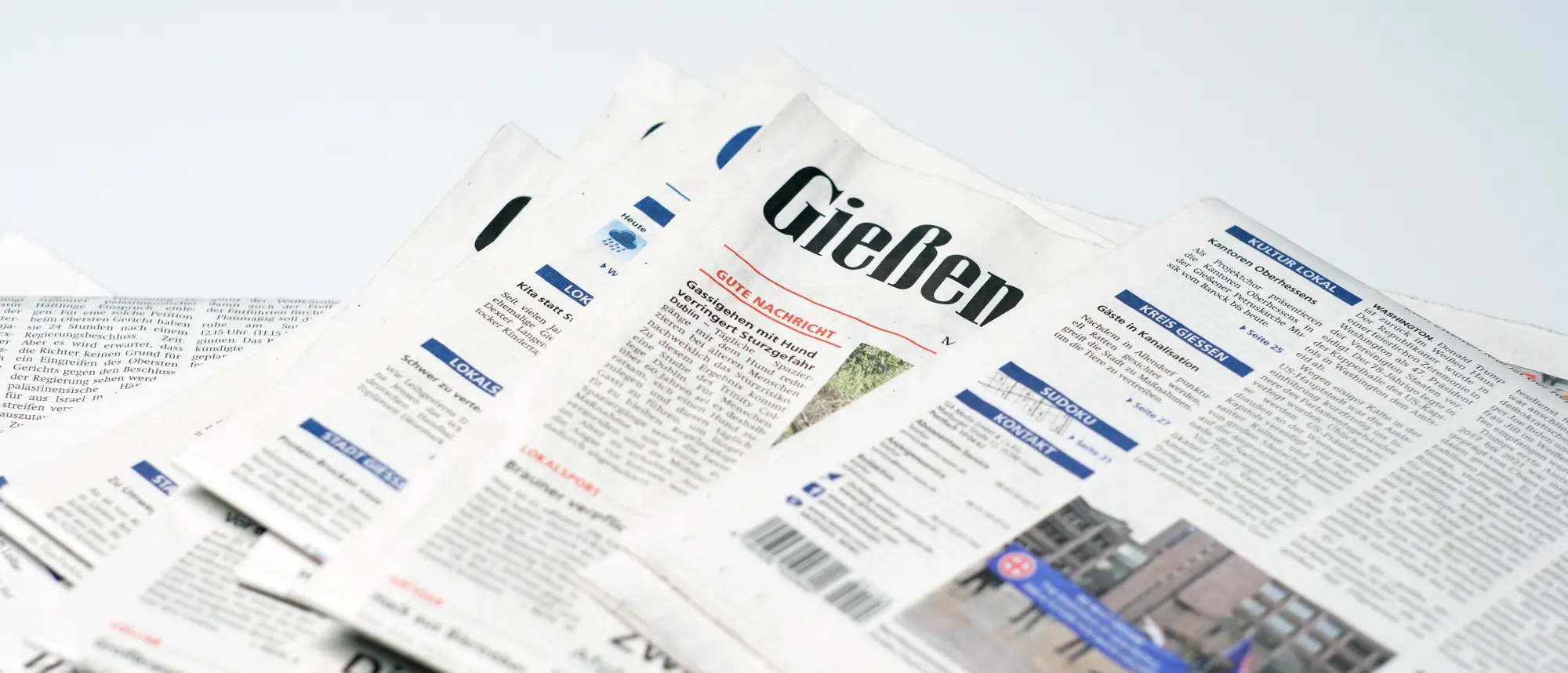At Stadtwerke Gießen's annual press conference this Thursday, SWG was able to look back on a successful 2009 financial year. While the company result was slightly negative in the previous year due to financial provisions, Stadtwerke was back in the black in 2009. Characterised by income tax refunds from previous years and increased electricity sales, the balance sheet now shows a plus of around 3.6 million euros for Stadtwerke Gießen AG and a good 4.3 million euros for the SWG Group. Of this, SWG is building up reserves totalling 1.3 million euros, while 1.5 million euros will flow to the city of Giessen as a profit distribution. SWG Supervisory Board Chairman Dr Volker Kölb was correspondingly pleased and thanked the Management Board and employees for their "solid and committed work".
Chairman of the Management Board Manfred Siekmann described the positive balance sheet as "a good result, but one that must be viewed in a differentiated manner". The 2009 annual financial statements were also influenced by strong special effects - in contrast to 2008, however, this time they were entirely positive. "We are also pleased to note that SWG is an absolutely healthy municipal company and is successful in its core business," emphasised Manfred Siekmann. Overall, the figures speak in favour of the success of the SWG guidelines: The company therefore continues to see itself as a long-term regional supplier that focuses on investment in new technologies, training and local customer service rather than short-term profit maximisation at any price.
Milestones in 2009
Stadtwerke Gießen's successes include the successful implementation of the "SWG 2015" strategy project. This involved merging the various grid departments and strengthening the promising metering business with a separate organisational unit. In addition, the expansion of the company's own energy generation based on renewable energies took a decisive step forward with the start of the trial operation of the TREA heating plant in April 2009. The increased use of innovative technologies such as a fuel cell for the energy centre currently under construction at the University Hospital in Giessen is also making progress, as Reinhard Paul, SWG's Chief Technical Officer, was able to report. "We are therefore well on the way to greater efficiency through economical energy generation on site," said Reinhard Paul, referring to the "Charter for Climate Protection" signed by the municipal utilities in July of this year. As part of the state of Hesse's sustainability strategy, SWG has agreed to improve the city of Giessen'sCO2 balance by 40 per cent by 2015 compared to 1990 levels.
There were also sales successes in the electricity sector: electricity sales to private and business customers rose by a total of 3 per cent due to increased demand in households and companies. In line with the trend that has been evident for years, the volume of electricity supplied by SWG exceeded the 1,000 gigawatt hour threshold for the first time. In this context, Stadtwerke Gießen was pleased to see an increase in business customers. The still young "En5" energy services team got off to a good start - the first dozen customers are already receiving heat deliveries in the order of 10 gigawatt hours.
Outlook
Stadtwerke believes it is well equipped for the 2010/2011 period: Following an out-of-court settlement, the local transport concessions for Giessen will be retained until at least 2014, and energy prices have been stabilised for the time being despite contrary market trends. The company's Management Board sees the strategic cooperation between the municipal utilities and four other regional suppliers in the establishment of a joint sales company as part of the SWG 2015 project as the latest success of the current year. The conversion of the infoCentre on Gießen's market square is scheduled for 2011. An additional floor is to be added to the building, providing significantly more space for customer service and energy advice.

